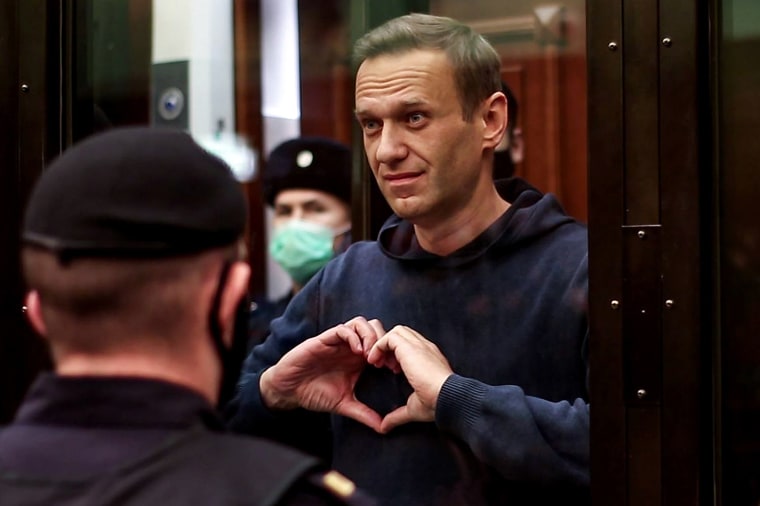President Joe Biden expressed shock and outrage at the death of Alexei Navalny on Friday, blaming Russian President Vladimir Putin for the opposition leader’s passing in a Siberian prison and saying the incident showed the importance of funding for Ukraine.
“Make no mistake, Putin is responsible for Navalny’s death,” Biden said in a fiery speech at the White House.
He said the U.S. did not know exactly what had happened to Navalny, but that “there is no doubt” that his death “was the consequence of something that Putin and his thugs did.”
“This tragedy reminds us of the stakes in this moment. Let’s provide the funding so Ukraine can keep defending itself against Putin’s vicious onslaught and war crimes,” he added, referring to billions in aid to help Ukraine fight Russia’s invasion that has been held up in Congress for months.
Throughout the day, global leaders and senior officials were swift to condemn the Kremlin after Russia’s most prominent opposition figure died.
“His death in a Russian prison and the fixation and fear of one man only underscores the weakness and rot at the heart of the system that Putin has built,” Secretary of State Antony Blinken told reporters at a conference in Munich.
While Navalny’s own team has not confirmed his death, other leaders were quick to blame it on the Russian government and even Putin himself.
Vice President Kamala Harris called the news of Navalny’s death, “terrible” and “a further sign of Putin’s brutality.”
Latvian President Edgars Rinkēvičs likewise did not mince words. “He was just brutally murdered by the Kremlin,” he said on X.
Navalny was poisoned with a nerve agent in 2020 — an attempt on his life that he blamed directly on Putin — and spent his final years behind bars as the Russian leader focused on his war in Ukraine.
For now, a spokesperson for Navalny said on X that they did not have any confirmation or information about his death.
Russia’s Federal Prison Service said in a statement that Navalny had died after feeling unwell following a walk Friday, “almost immediately losing consciousness.”
His mother, Lyudmila Navalnaya, was quoted by the Russian newspaper Novaya Gazeta as saying that her son had been “alive, healthy and happy” when she last saw him on Monday.

Many leaders said they were “disturbed” by the wider implications of Navalny’s death, what it says about an ascendant Putin and the deteriorating conditions for Russia’s already beleaguered opposition, as the Kremlin tightens control over his critics with increasingly stringent laws and crackdowns on freedom of speech.
“Putin fears nothing more than dissent from his own people,” E.U. Commission President Ursula von der Leyen said.
French President Emmanuel Macron expressed “anger and indignation,” and said: “In today’s Russia, free spirits are sent to the gulag and condemned to death.”
“My thoughts go out to his family, loved ones, and to the Russian people,” he added.
Charles Michel, president of the European Council, added condolences to “those who fight for democracy around the world in the darkest conditions.”
“Fighters die. But the fight for #freedom never ends,” Michel said.
Also on X, British Prime Minister Rishi Sunak called Navalny’s death “Terrible news. As the fiercest advocate for Russian democracy, Alexei Navalny demonstrated incredible courage throughout his life.”
German Foreign Minister Annalena Baerbock said: “Like no other, Alexei #Navalny was a symbol of a free and democratic Russia. That’s exactly why he had to die.”
Even as condolences and expressions of shock pour in, NATO Secretary-General Jens Stoltenberg laid out the task ahead for an international community that will have to grapple with an increasingly brazen and authoritarian Russia: “We need to establish all the facts, and Russia needs to answer all the serious questions about the circumstances of his death.”






